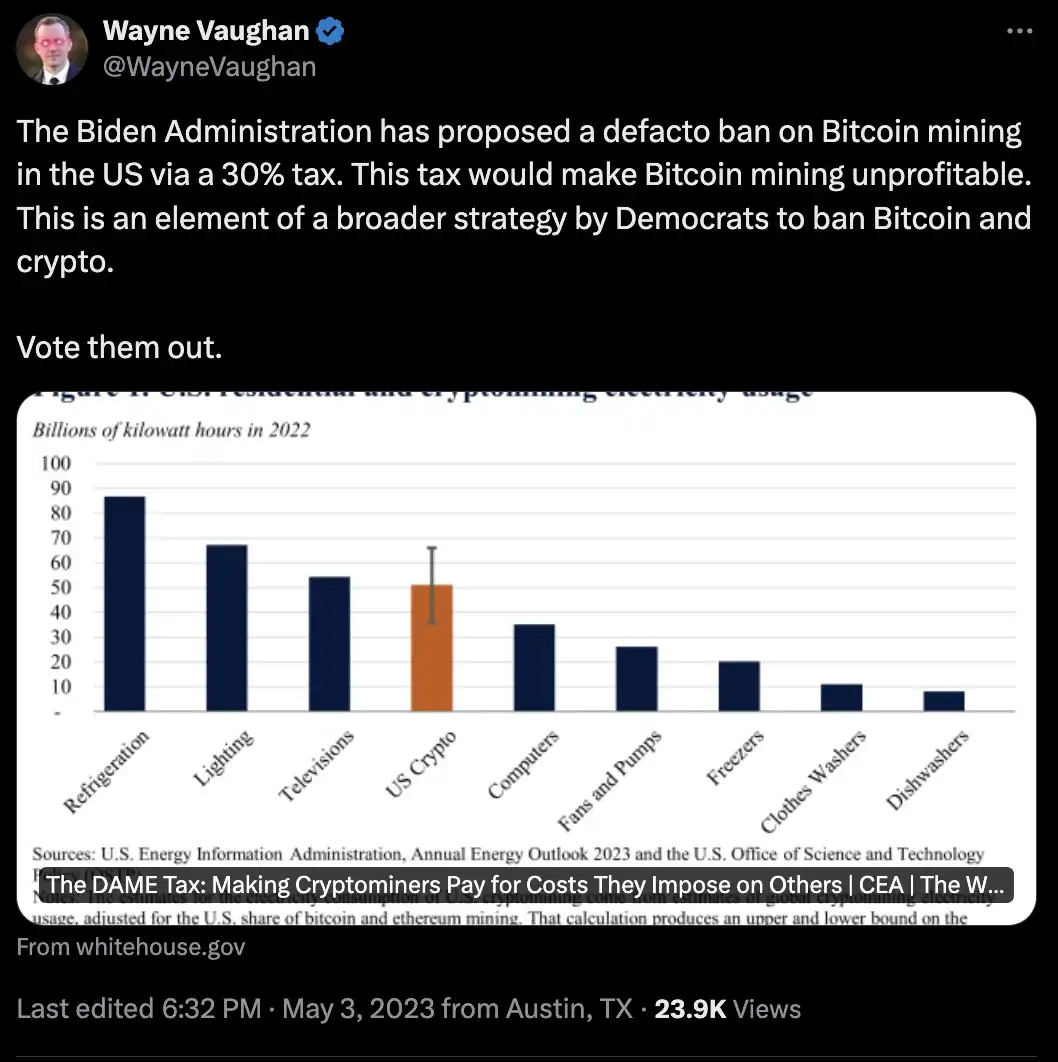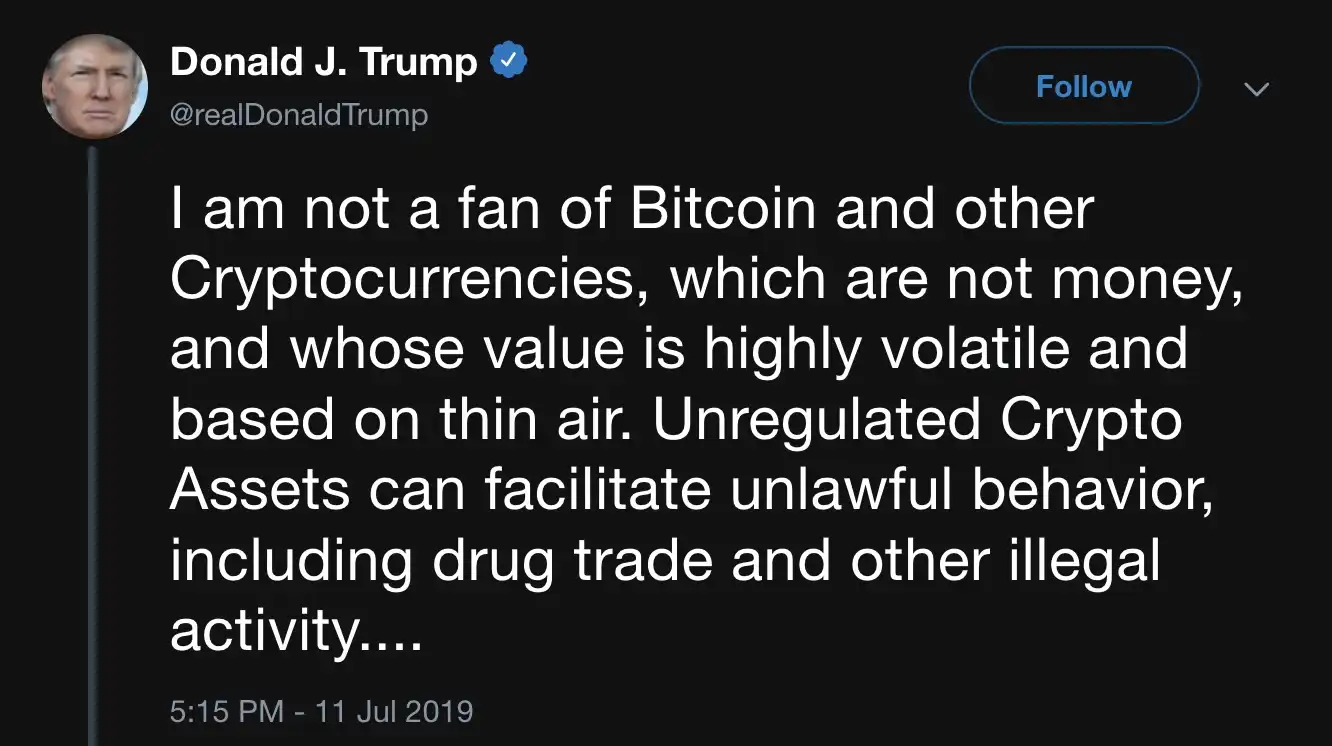Exploring the differing perspectives of former President Donald Trump and President Joe Biden on cryptocurrency.
The race for the presidency is intensifying as the November elections draw closer, sparking enthusiasm among many as Former President Donald Trump praises cryptocurrency. However, how does Trump stack up against the current president? Trump and President Joe Biden may stand in stark contrast on numerous issues, but cryptocurrency could be a point of convergence for them.
While Biden has garnered little favor among cryptocurrency enthusiasts and businesses, his personal stance on the matter remains relatively ambiguous. Apart from an executive order calling for cryptocurrency research and a tweet highlighting unclear tax provisions benefiting wealthy crypto investors, Biden has remained largely silent on the issue. The antagonism towards cryptocurrency has largely stemmed from actions taken by his administration.
In February 2023, concerns erupted over the potential revival of Operation Choke Point, an initiative from the Obama administration, under the Biden administration. Reports indicated increased pressure on banks from government officials regarding any involvement with cryptocurrency, as documented by Nic Carter.
A month later, former Biden administration advisor Daleep Singh disclosed efforts to promote the launch of a central bank digital currency (CBDC) with the aim of displacing the crypto ecosystem.
In May 2023, and again in March 2024, the Biden administration proposed a 30 percent tax on cryptocurrency miners' energy expenses. While purportedly targeting the societal harms posed by miners, critics argued that the tax was designed to drive miners out of business, irrespective of their energy source.

More recently, the Energy Information Administration utilized emergency powers to compel cryptocurrency miners to comply with information requests. This action was later retracted following legal challenges and a temporary restraining order issued by a judge.
Over the past few years, the Securities and Exchange Commission (SEC) has implemented numerous regulations and enforcement actions, with Chairman Gary Gensler suggesting a heightened scrutiny of everything except Bitcoin. Critics have condemned the SEC's approach as irrational and detrimental to innovation.
Given the hostile treatment, calls for change are understandable. But does Donald Trump offer a different approach?
Trump appears to have acknowledged public discontent and made gestures to appease cryptocurrency users. He expressed excitement over cryptocurrency's role in his sneaker sales during a CNBC interview, indicating hesitance to curtail its use. Additionally, it was revealed last year that Trump holds approximately $2.8 million in cryptocurrency.
However, Trump's stance is far from libertarian or maximalist. He has suggested the necessity of some regulation regarding Bitcoin, along with a commitment to uphold the dominance of the dollar, even hinting at using trade or regulatory measures, or potentially military intervention, to enforce it. Similar sentiments were expressed in 2021, advocating heavy regulation to prevent cryptocurrencies from challenging the dollar's supremacy.
During his presidency, Trump expressed even greater hostility towards cryptocurrencies, dismissing them as non-money with volatile value, capable of facilitating illicit activities. He called for stringent regulation of companies attempting to create cryptocurrencies, likening them to banks.

In summary, Trump's stance translates into advocating for increased restrictions on currency competition, heightened financial surveillance, and augmented regulatory burdens.
At the agency level, the situation under Trump's administration presented a mixed picture due to cryptocurrency's emergence into the mainstream.
Under Treasury Secretary Stephen Mnuchin, the Financial Crimes Enforcement Network introduced the controversial wallet rule to enhance financial surveillance and gather data on cryptocurrency users. Although not comparable to Gensler's SEC, Jay Clayton's tenure saw 57 cases against cryptocurrency-related firms.
However, notable officials within the administration adopted more nuanced positions, urging caution. Mark Calabria, then-chief economist for Vice President Mike Pence, emphasized an open-minded approach. Acting Comptroller of the Currency Brian Brooks advocated for cryptocurrency and pushed for reforms. Similarly, Consumer Financial Protection Bureau Acting Director Mick Mulvaney cautioned against over-regulation, highlighting its adverse effects on market participation.
While these examples provide insight into where Biden and Trump stand on cryptocurrency, neither president emerges as a staunch advocate. Instead, the choice seems to boil down to the lesser of two evils once again.
This article serves as general information and should not be construed as legal or investment advice. The views expressed herein are solely those of the author and do not necessarily reflect the views of Cointelegraph.

